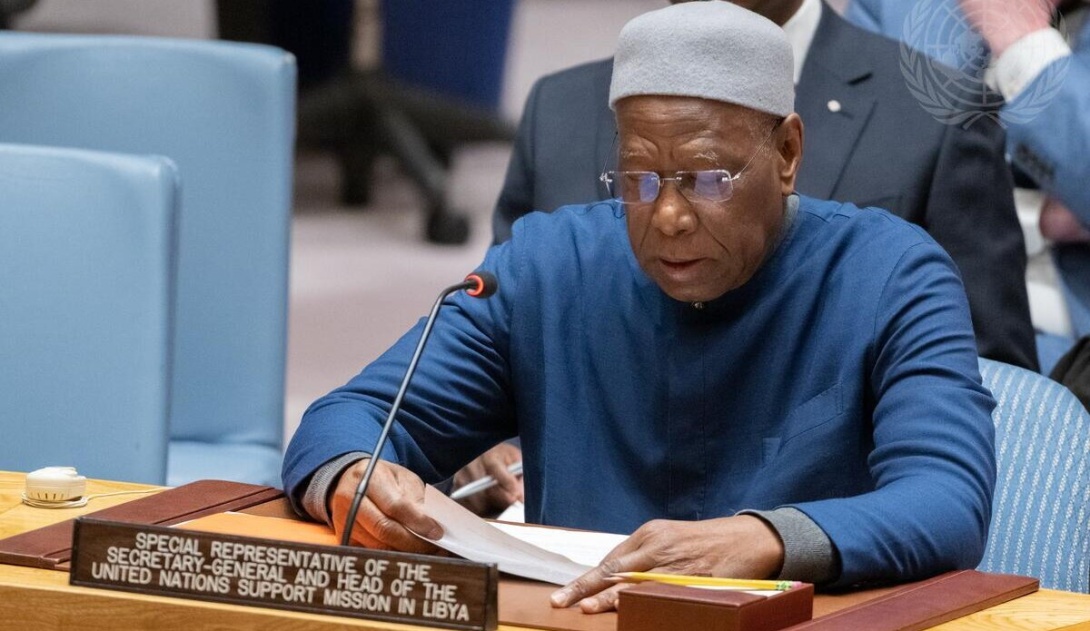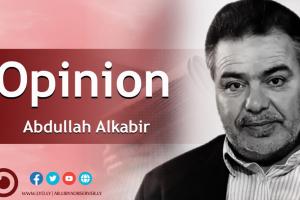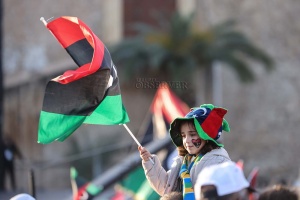By Abdullah Alkabir, Libyan political writer and commentator
Has Bathily started activating the alternative options?

The meeting of security and military leaders and figures from east and west of the country in Tripoli, under the auspices of the UN envoy, about two weeks after a previous meeting in Tunis, is a remarkable development in the Libyan crisis. The 5 + 5 Military Committee participated in the two meetings, which will make it an essential pillar in any rapprochement at the security and military levels between the East and West camps.
It is no secret that the recent visits by American officials, the latest of which is by the US Assistant Secretary of State for Near Eastern Affairs, Barbara Leaf, are the real engine for all current political developments. Figures close to Haftar arrived in Tripoli, to discuss with their counterparts in the west of the country, securing elections, using a joint force that is to be formed from all parts of the country. Haftar would not have allowed such an engagement in normal circumstances, and without US pressure, but the Libyan file has become one of the American priorities, as a natural result of developments of the war in Ukraine.
Although not much is to be achieved and the outcome will be limited, or superficial at best, as it is not expected to see profound results on the ground from such meetings. The final outcome will not exceed what the 5 + 5 Military Committee has achieved so far. Like forming a joint force to secure the south, and to remove or limit the influence of the dominant militias there, which means Haftar will lose vital positions that generate money for his militias, such as smuggling crossing points, fuel stations, as well as the oil fields that he used to extort the Tripoli authorities. But, will Haftar allow a force from the West, which until recently was hostile to him and destroyed his dreams of controlling the capital, to participate in securing the south, thus weakening his influence and control?
Some reports indicate that Haftar has accepted the formation of this force to only secure the elections, that is, it has nothing to do with the south, but if the American pressure continues, and such a force is indeed formed, there are no guarantees that it will not be directed to the south to confront the Wagner groups, and this should raise Haftar's concern, as the war continues in Ukraine. The file of Russian influence in Libya, through the Wagner Groups, will remain high on the US list of priorities. Furthermore, the fact-finding committee’s threat to refer a list of names of human rights violators and perpetrators of war crimes in Libya to the International Criminal Court means the coming weeks and months entail vast areas of concern that await Haftar and some of his sons and militia leaders.
No doubt, communication at this level has broken a thick barrier between two poles that were recently on the line of armed confrontation, and it will have direct repercussions on the active political parties in the House of Representatives (HoR) and the High Council of State (HCS). Signs of readiness to secure elections with a joint force affiliated with the two chiefs of staff, drops the argument that it is not possible to hold elections due to the security divisions. It is an argument marketed by representatives, and members of HoR, and HCS respectively. However, the said meetings being sponsored by UNSMIL are accorded a supportive international dimension. After this meeting, the feeling is growing in both HoR and HCS that UNSMIL is quietly pulling the rug from under their feet, and that Bathily may have begun to activate his alternatives, after his repeated pronouncements of such alternatives. Each time, such pronouncement was accompanied by severe criticism from the House of Representatives and the High Council of State. The security and military leaders may well support the UN envoy’s approach towards the formation of the High-Level Panel for Elections, which he announced in his last briefing to the UN Security Council, especially if these leaders do secure an appropriate share of the seats in this panel, and this will further weaken the HoR and HCS, and signal the end of their hegemony over the management of the Libyan political solution.
Disclaimer: The views and opinions expressed in this article are those of the writer, and do not necessarily reflect those of the Libya Observer



